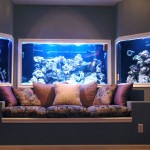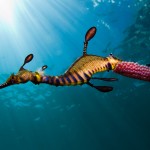First off sorry for the lack of content in recent weeks. I’ve gotten some emails from reefers asking if I was alright. I’m fine; my second book is nearing release so I’ve been busy getting things in order with that. Without further ado:

Like many reef aquarists I wasn’t always concerned with the ethical, moral and perhaps legal debate surrounding marine aquariums. I was young when I started my first marine tank and had spent my childhood and adolescent years keeping freshwater aquariums, where nearly every species of fish is bred in captivity. In all reality, when I first started purchasing marine fish, I had no idea that the bulk of them came from the wild. I certainly wasn’t ocean literate, as this was long before my days as a scuba diver and well before my education in coral reef biology. Once I was older and better educated, my quills came out regarding the effect marine aquariums may be having on Mother Nature. It was when I first learned to dive and eventually visited a coral reef (off the coast of West Palm Beach, FL) that I became concerned. It was then I realized that no matter how hard we try the environments we create in captivity pale in comparison to what these animals experience in the wild.
Since then the arguments behind ethics, morality and regulation of the marine aquarium hobby have interested me. In fact, I personally believe they are some of the most important conversations aquarists can have. No matter what hobby, industry or field you look at; there is always room for improvement. We all see the marine aquarium hobby differently. Some see it as a simple hobby, comparing it to modeling or collecting. Others see it as an effort to learn more about natural ecosystems and even equate it in the mold of conservation. Those of us who are advanced, hardcore aquarists enjoy nearly every aspect of marine aquariums; from chemistry on up to technology. Trying to look at the topic objectively is impossible if you’re an aquarist.
I understand that every hobby, industry, etc. has negative contributions, but for the sake of the ethical, moral, regulation discussion surrounding marine aquariums, it’s valuable to key into factors that are relevant.
Aquariums of the rich and famous:
 It wasn’t that long ago when the story broke about a wealthy person whom had a vacation house in Hawaii, complete with an aquarium holding several thousand gallons of water. This of course became the focal point of the 500 yellow tangs that were found in a Hawaii dumpster. The tangs had been added to the person’s aquarium and perished, only to be discarded with other unwanted trash. Television shows like Tanked have glamorized ultra-wealthy individuals who decorate their homes with huge, top of the line aquariums. These tanks are pretty unlike what the common reefer has and are more of a spectacle, rather than a learning experience. Many of us have simmered as we watched the Tanked crew release sensitive, hard to keep fish species into newly set-up super aquariums.
It wasn’t that long ago when the story broke about a wealthy person whom had a vacation house in Hawaii, complete with an aquarium holding several thousand gallons of water. This of course became the focal point of the 500 yellow tangs that were found in a Hawaii dumpster. The tangs had been added to the person’s aquarium and perished, only to be discarded with other unwanted trash. Television shows like Tanked have glamorized ultra-wealthy individuals who decorate their homes with huge, top of the line aquariums. These tanks are pretty unlike what the common reefer has and are more of a spectacle, rather than a learning experience. Many of us have simmered as we watched the Tanked crew release sensitive, hard to keep fish species into newly set-up super aquariums.
Recently I stumbled on an article in Chicago Magazine that detailed a home for sale that included three 500 gallon aquariums built in. They were all marine aquariums, used to accentuate various features of the home. Service companies have sprung up that install and maintain these aquariums, for a premium price, so that the owners can truly have “living décor.” When watching Tanked and reading about homes such as the one in Chicago, where aquariums are less passion and more furniture, my moral compass sort of spins aimlessly while seeking north. Should living animals that science has shown us are emotional, feeling (perhaps even self-aware) creatures be used as décor? Can any advanced reef aquarist look at a coral or fish and see it only as a decoration? Such aquariums are a spectacle indeed and many are entertained watching installers wrangle materials together to create them. Though if money is no object to someone, are the animals within the aquarium simply replaceable? As of right now, there are no regulations on what size of aquarium someone can keep, nor what they can stock it with. Someone could easily install a massive tank and fill it with black tipped reef sharks, nurse sharks or any other species unsuitable for captive life under any scenario. In fact it’s been done and occasionally a private tank full of sharks gets a few minute spot on television. Do the owners of these massive aquariums have empathy for the environment which the animals came from; do they understand the severe long term consequences of removing animals to serve as living décor?
Massive aquariums require far more resources to stock. Often huge numbers of large adult fish are collected to fill these tanks. When something goes wrong, instead of a handful of fish dying, you are left with a dumpster full of trash bags containing an entire school of fish. On one episode of Tanked the crew met with comedian Tracy Morgan to design a new aquarium for Mogan’s giant Pacific octopus. Should the question be asked if a giant Pacific octopus is an animal that should legally be available for purchase to the public? These are highly intelligent, large animals that have a host of specific requirements and are best left in the wild. An article was circulating recently about weedy seadragons that had been purchased for tens of thousands of dollars by a wealthy aquarium owner. Is that just part of “the aquarium hobby” as a whole, or is this a serious issue that may require legislative action? Overall, does the capitalist attitude that money talks contribute more to the aquarium hobbies’ effect on wild reefs, than average aquarists who treat their aquariums as a learning experience and act with restraint?
 The argument is easily made that aquariums are an example of pet ownership. People have had all manner of pets for centuries. Today the oceans are in peril, with an oceanic collapse predicted sometime in the next 50 years. Oceans are dying, yet the very wealthy are adding 500 gallon plus sized aquariums simply to accentuate their staircase, leaving the responsibility for animal care to a part time service attendant.
The argument is easily made that aquariums are an example of pet ownership. People have had all manner of pets for centuries. Today the oceans are in peril, with an oceanic collapse predicted sometime in the next 50 years. Oceans are dying, yet the very wealthy are adding 500 gallon plus sized aquariums simply to accentuate their staircase, leaving the responsibility for animal care to a part time service attendant.
Of course the argument could be made that there isn’t a nickel’s worth of difference between a rich person having a 2,000 gallon aquarium installed and maintained and a middle class person with a 55 gallon marine tank. In resources alone there is a huge difference as both tanks have a very different ecological footprint. Is it wrong to question if regulation may be needed for aquariums in excess of a certain size, governing the amount of animals that can be kept and more importantly repeatedly replaced? Is it alright that one person can place large numbers of animals in captivity and kill them, requiring more? Where do we draw the line? There are amply restrictions on exotic animals that can be kept without required zoo permits, forcing those who keep them to meet certain criteria. Should the same not apply to marine livestock?
A different viewpoint:
 As an aquarist, I don’t see marine animals as living décor, furniture or a hot collectable. I have a mix of very expensive rare fish and more common species. Fish are my favorite creatures on this blue Earth and I’ve spent most of my life studying their biology, physiology, social hierarchies and amazing adaptations. Corals are a close second for me and I learn something new about reef biology nearly every day, spending a lot of time with a macro-scope studying the unique color patterns on each of my corals. Right now I am conducting private research into the fascinating world of coral microbes, in hopes of unlocking some of these mysteries to benefit my fellow aquarist. It’s difficult not to acknowledge that marine fish (all species in reality) have gotten the short end of the stick. Many of the regulations that prevent animal cruelty don’t apply to fish. They are raised in aquaculture, under conditions that wouldn’t be allowed for many other animals. We collect them from natural environments; ship them all over the world, cramming them into tiny tanks where they are exposed to pathogens. For so many average aquarists, just the expense of a marine fish is enough to ensure that it gets the best possible treatment and financial limitations help prevent an endless cycle of replacement in the event of death. Would basic regulations governing how much one person can take from the environment not be of benefit to everyone, especially the marine animals we love?
As an aquarist, I don’t see marine animals as living décor, furniture or a hot collectable. I have a mix of very expensive rare fish and more common species. Fish are my favorite creatures on this blue Earth and I’ve spent most of my life studying their biology, physiology, social hierarchies and amazing adaptations. Corals are a close second for me and I learn something new about reef biology nearly every day, spending a lot of time with a macro-scope studying the unique color patterns on each of my corals. Right now I am conducting private research into the fascinating world of coral microbes, in hopes of unlocking some of these mysteries to benefit my fellow aquarist. It’s difficult not to acknowledge that marine fish (all species in reality) have gotten the short end of the stick. Many of the regulations that prevent animal cruelty don’t apply to fish. They are raised in aquaculture, under conditions that wouldn’t be allowed for many other animals. We collect them from natural environments; ship them all over the world, cramming them into tiny tanks where they are exposed to pathogens. For so many average aquarists, just the expense of a marine fish is enough to ensure that it gets the best possible treatment and financial limitations help prevent an endless cycle of replacement in the event of death. Would basic regulations governing how much one person can take from the environment not be of benefit to everyone, especially the marine animals we love?
Creation of a registry:
 With advanced communications technology it would be possible to create a registry of marine aquarium owners. A similar program was started for saltwater sport fishermen and if you’re fishing in some states, it’s required that you’ve registered on the saltwater angler website. This aids states and conservation scientists in determining how many people are fishing and roughly how much they are catching. A registry of marine aquarists seems like a good idea. This would give agencies such as National Marine Fisheries Service (NMFS) and National Oceanic and Atmospheric Administration (NOAA) baseline data when conducting research and implementing regulations. When someone purchases a marine animal, they simply present their registry card and it’s scanned, updating a database of their purchases. One of the greatest obstacles in determining if regulations are needed for the hobby and what regulations could be applied is a lack of data. This lack of data exists from the point of an animal’s collection on up to its purchase and placement in a private aquarium. A simple registry that tracks the purchases of individual aquarists, creating a roadmap of what they’ve purchased and from where could fill in this data gap and help promote a more sustainable marine aquarium hobby.
With advanced communications technology it would be possible to create a registry of marine aquarium owners. A similar program was started for saltwater sport fishermen and if you’re fishing in some states, it’s required that you’ve registered on the saltwater angler website. This aids states and conservation scientists in determining how many people are fishing and roughly how much they are catching. A registry of marine aquarists seems like a good idea. This would give agencies such as National Marine Fisheries Service (NMFS) and National Oceanic and Atmospheric Administration (NOAA) baseline data when conducting research and implementing regulations. When someone purchases a marine animal, they simply present their registry card and it’s scanned, updating a database of their purchases. One of the greatest obstacles in determining if regulations are needed for the hobby and what regulations could be applied is a lack of data. This lack of data exists from the point of an animal’s collection on up to its purchase and placement in a private aquarium. A simple registry that tracks the purchases of individual aquarists, creating a roadmap of what they’ve purchased and from where could fill in this data gap and help promote a more sustainable marine aquarium hobby.









A good articale, but i would like to point out that the top picture
of the curved aquarium is the tank of the openhaarden centrum in vlaardingen.
Having met the people behind this tank, i know that they are very passionate about the hobby and the animals , do all the
maintenance work and animal care themselves and have been helping to bring the hobby in Europe to a higher level.
I find the use of the picture of their aquarium combined with this story very out of place and i would kindly request to use different picture to illustrate this article.
Alexander, this image was found using a Google image search and I was unaware of what it displayed. I assumed (we both know what assumptions do) that it was a very large privately owned tank. I will remove the image and replace it with something else, as I agree it creates a total misrepresentation.
Alexander, the image has been replaced and I apologize for the misrepresentation.
Thank you Jeremy